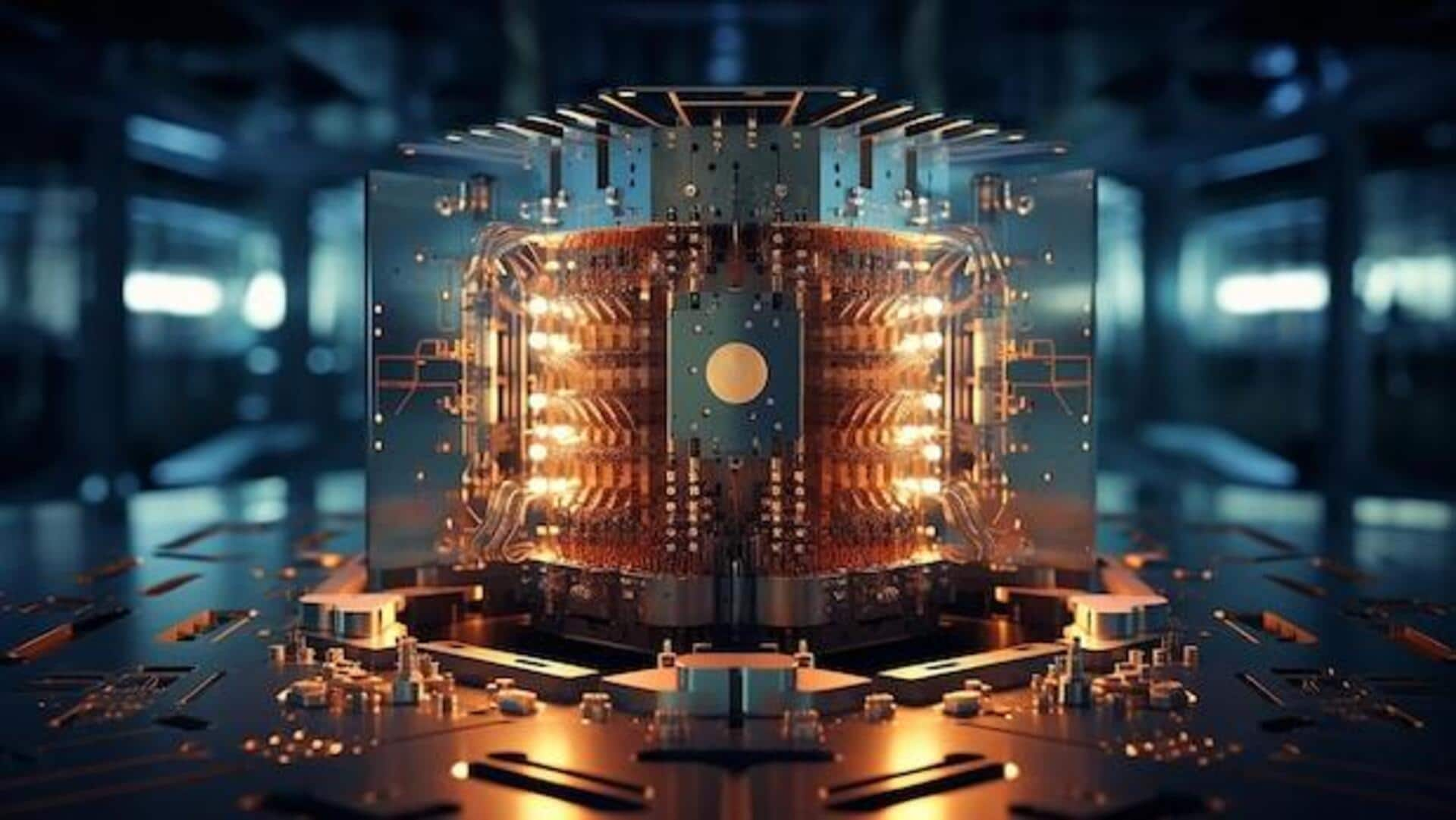
MIT's new chip promises more accurate quantum computing
What's the story
Quantum computers are said to potentially revolutionize computing since they can perform calculations much faster than current supercomputers. On that front, MIT researchers have come up with a groundbreaking new circuit that showed unprecedented accuracy in quantum computing operations. The team utilized a novel type of superconducting qubit called fluxonium to achieve that feat and their approach could pave the way for commercial applications.
Details
Quantum computers can accumulate errors just as fast
The downside of quantum computers is that, while they are faster, they can also accumulate errors. With billions of operations in large-scale systems, even minor errors can cause system failure. Hence, quantum computers need an error correction system that can account for computational errors faster than they occur. However, the current quantum computers lack the robustness to achieve this error correction at commercial scales, per the official MIT press release.
Process
Fluxonium qubits offer longer lifespans
For over a decade, transmon qubits have been the primary focus of quantum computing research. However, fluxonium qubits—a more recent development—offer longer lifespans or coherence times. Coherence refers to how long a qubit can compute operations or run algorithms before all the information is lost, explains the official blog. Using fluxonium qubits, the researchers were able to obtain coherence times of more than a millisecond, which is about 10 times longer than traditional transmon qubits.
Official words
Researchers used a "special coupling element" in their architecture
In their study, researchers used a "special coupling element" between two fluxonium qubits that allowed them to perform logical operations, called gates, with "high accuracy." "It suppresses a type of unwanted background interaction that can introduce errors in quantum operations," notes the blog. The accuracy of quantum operations performed at these gates is measured by what's called 'fidelity.' The longer a qubit lives or remains coherent, the greater the fidelity or accuracy of the quantum operation at the gates.
Results
Researchers achieved single-qubit gate fidelity of 99.99%
Notably, the researcher's approach, using their fluxonium-transmon-fluxonium (FTF) architecture, allowed for stronger coupling than directly connecting two fluxonium qubits. Coming to the results, the team was able to achieve a single-qubit gate fidelity of 99.99% and a two-qubit gate fidelity of 99.9%. Researchers attribute these high levels of accuracy to the system's ability to suppress the unwanted interactions and longer coherence times of the fluxonium qubits.
Insights
'We showed a highly promising two-qubit system'
"Building a large-scale quantum computer starts with robust qubits and gates. We showed a highly promising two-qubit system and laid out its many advantages for scaling. Our next step is to increase the number of qubits," said Leon Ding, the study's lead author. Next, the team wants to demonstrate the advantages of their FTF architecture in systems with more than two connected qubits. While a fully functional computer may be a decade away, this research marks a significant step forward.